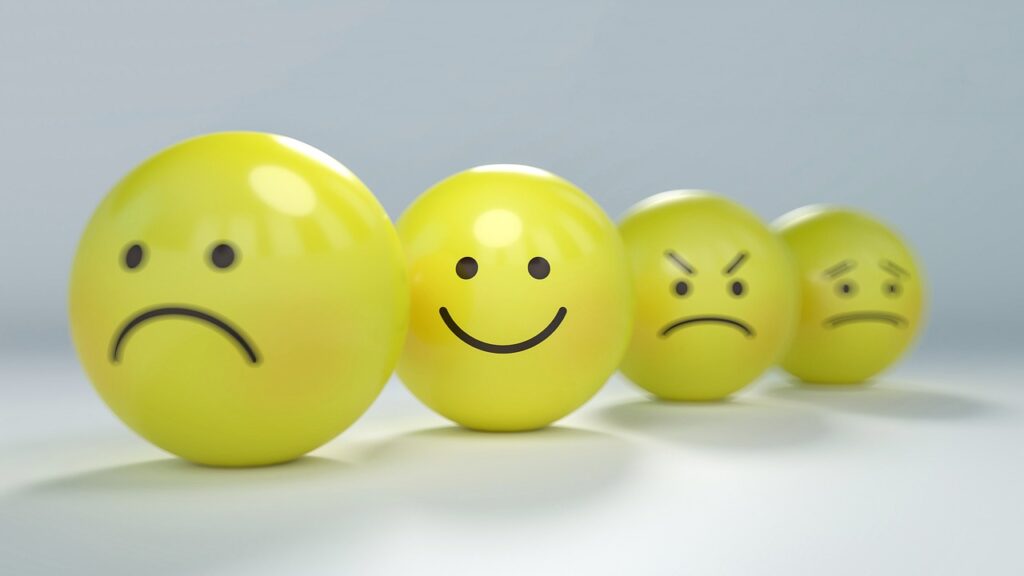Dr D Venkateshwar Rao

Depression and mood disorders can leave you feeling trapped in a cycle of sadness, hopelessness, and exhaustion. If you’re struggling to find joy in your life or feel disconnected from the world around you, counseling can help you find your way back to emotional balance and well-being. At SmartMinds, we specialize in providing compassionate, evidence-based care for individuals experiencing depression and mood disorders.

Our counseling sessions provide a safe, supportive environment where you can explore the root causes of your depression. Whether it’s past trauma, current life stressors, or chemical imbalances in the brain, we’ll work with you to understand your unique experience and develop personalized coping strategies. Our counseling techniques based on positive psychology and cognitive psychology like cognitive-behavioral therapy for depression and mood disorders (CBT-DM) and mindfulness based therapies help challenge negative thought patterns, reframe perspectives, and build a more positive outlook.
For example, take a student or young professional who’s feeling overwhelmed at studies or work. The pressure to succeed and meet deadlines leaves him drained and anxious. Through CBT-DM, he learns to identify distorted thoughts like “I’m not good enough” and replaces them with more realistic, affirming thoughts. Over time, this shift in thinking helps him reduce stress and approach studies or work with more confidence and focus.
Another example involves an individual who’s been grieving the loss of a loved one. The sadness and emotional pain have spiraled into depression, making it hard for her to get out of bed or participate in the daily activities. Through counseling, she processes the grief, learns coping strategies for dealing with overwhelming emotions, and re-establishes a routine. This step-by-step recovery process helps her regain some emotional stability, gradually restoring her connection with life.
We understand that depression can make even the simplest tasks feel overwhelming, and we are committed to walking alongside you on your journey toward healing. Together, we’ll work to rebuild your emotional resilience, strengthen your coping mechanisms, and restore your sense of joy and purpose.
If you’re ready to take the first step toward overcoming depression, reach out to SmartMinds today. Our team is ready to support you in regaining control over your mood and emotional health. Don’t wait—start your journey toward healing today.
How we think? How we feel? How we react? How we behave? It all depends on the functioning of our mind. The mind is the foundation of our success or failure in family life, various professions, and employment. When we understand the mind correctly, not only does the quality of our thoughts and responses improve, but we can also live a more peaceful, joyful, and happy life.
For more information please read the book “Manodarpanam” by Dr Desineni Venkateshwar Rao
Counselling helps individuals with depression and mood disorders by providing a safe space to explore emotions, thoughts, and behaviors. Therapists use evidence-based techniques, such as Cognitive Behavioral Therapy (CBT), to identify negative thought patterns and replace them with healthier ones. Additionally, therapy can improve coping strategies, help set achievable goals, and offer emotional support. By addressing the root causes and providing tools for managing stress, counselling helps individuals gain control over their mood, reduce symptoms, and build resilience against future episodes of depression or mood swings.
Cognitive Behavioral Therapy (CBT) is widely considered one of the most effective treatments for mood disorders, particularly for depression and anxiety. CBT focuses on changing negative thinking patterns and behaviors that contribute to emotional distress. Other therapies, such as Dialectical Behavior Therapy (DBT) and Interpersonal Therapy (IPT), can also be effective, especially for individuals with mood instability. Medication, such as antidepressants, is often combined with therapy for a more comprehensive approach. The best therapy depends on individual needs, so a personalized treatment plan is essential for effective outcomes.
Postpartum depression (PPD) affects many new mothers and can lead to feelings of sadness, anxiety, and overwhelm. Counselling for PPD provides emotional support and helps mothers process their experiences and fears. Therapists may use Cognitive Behavioral Therapy (CBT) to address negative thought patterns or offer interpersonal therapy to improve relationships and social support. Additionally, therapists can help with self-care strategies, stress management, and managing expectations. A supportive and non-judgmental environment in therapy encourages mothers to express themselves and seek healing, ultimately improving their mental health and their bond with their baby.
Therapy can be crucial for managing chronic depression, a condition marked by persistent, long-term symptoms. Cognitive Behavioral Therapy (CBT) helps individuals identify and challenge negative thought patterns and behaviors that contribute to their depressive state. Therapy can also address underlying causes, such as unresolved trauma or relational issues, and teach coping strategies for managing daily life. For chronic depression, therapists may also incorporate mindfulness practices, problem-solving skills, and emotional regulation techniques. With consistent therapy, individuals can develop a deeper understanding of their condition and find long-term relief from symptoms.
Couples therapy can be incredibly beneficial when one partner is dealing with depression. It provides a space for both partners to communicate openly about their feelings, needs, and challenges. Therapy helps the non-depressed partner understand the impact of depression and learn how to offer support without feeling overwhelmed. For the depressed partner, therapy helps to address negative thought patterns and behaviors that may be affecting the relationship. Couples can also work together to improve intimacy, trust, and communication. This collaborative approach helps both partners navigate depression as a team, strengthening their bond.
Counselling can significantly improve mood stability by helping individuals develop healthy coping mechanisms and self-awareness. Therapists use approaches like Cognitive Behavioral Therapy (CBT) to address negative thought patterns, teaching clients how to reframe situations that trigger emotional instability. Therapy also helps individuals identify early warning signs of mood shifts, enabling them to take proactive steps to manage their emotions. Through regular sessions, individuals learn mindfulness, relaxation techniques, and emotional regulation strategies that foster greater emotional balance. Overall, counselling empowers individuals to recognize and manage mood fluctuations more effectively.
Support for parents or children with depression and mood disorders is crucial for their well-being. For parents, counselling can provide guidance on managing their own emotions while supporting their child, as well as offering parenting strategies that foster emotional resilience. For children, therapy tailored to their age and developmental stage can help them understand their feelings and develop coping skills. Play therapy, CBT, and family therapy are often effective for children. Support groups for both parents and children offer shared experiences, and school-based interventions can help children maintain stability while managing their mood disorder.

Copyright © 2025 Smartmids All rights reserved